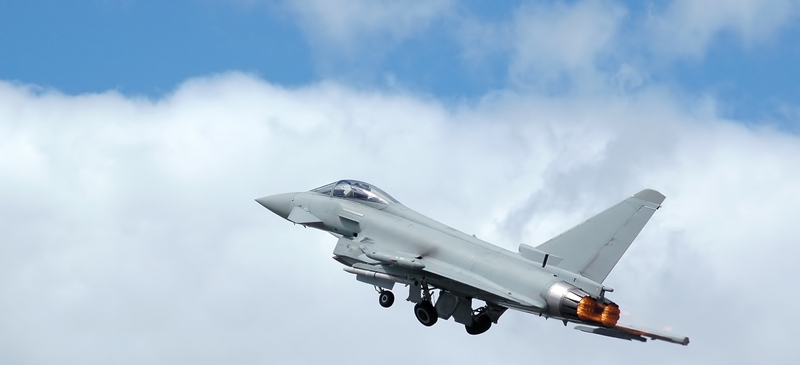
Britain and France must pool parts of their defence
In European Union defence, Britain and France spend the most money (45 per cent of the total), maintain the largest and most effective expeditionary forces, run the biggest defence industries and manage the most important research facilities. History and inclination give them the most global outlook and greatest propensity to act internationally. Nothing of significance in European defence can happen without them. Acting together, as when they decided at St Malo in 1998 that the EU should have its own military capability, they can guide the Union’s future development.
Yet both face acute budgetary difficulties and their relevant technological capabilities are falling behind the world’s best. Mainly because of these resource problems, what they envisaged at St Malo has not yet become reality. But does this matter? Why not renounce the ambition of being able to deal effectively with medium-sized crises in Europe without the Americans, or of being able to intervene autonomously in Africa or elsewhere to deal with a humanitarian crisis or rescue our citizens? Surely we can rely on NATO and the Americans to help us? Why not rely on US industry too?
The answer is that we cannot always rely on the US to act where and when we in Europe think it necessary. American forces are overstretched and their priorities may not coincide with ours. After Iraq, we should not expect the US to be enthusiastic about shouldering military burdens on our behalf, as it did in the Balkans. And at the industrial level, American companies are constrained by law from sharing their technology: Europeans may be able to buy their equipment but will not always know how it works or be able to adapt it to their needs.
Europe’s need for autonomous operational, technological and industrial capabilities is real. The European Council decided in 1999 that the EU should be able to undertake missions ranging from humanitarian interventions to the ending of regional conflicts. It defined the ‘Helsinki headline goal’ – a force of 60,000 troops plus associated air and naval support – as the means for fulfilling these so-called Petersberg tasks. Yet the EU still lacks the military muscle to carry out the most taxing of these missions.
Britain and France are likely to carry out major reviews of defence policy in the next two years. France’s 2007 presidential election will probably be followed by a defence review, while the next British prime minister will surely ask for one – British armed forces are severely overstretched and not as well equipped as they should be for current operations.
These reviews are unlikely to recommend larger defence budgets. Why should they when Europe could easily plug many of its capability gaps if governments spent more efficiently the €180 billion currently allocated to defence? “Spend smarter and you will not need to spend more” will be the message from the finance ministers to their defence counterparts.
The British and French defence ministries should heed this advice and set a standard for the rest of Europe by starting to pool capabilities. For example, they could share and outsource support for equipment that both operate, such as the A400M transport plane, missiles and sensors; or establish a joint logistics effort to support front-line troops; or coordinate naval deployments in some parts of the world, for example in the Caribbean or off West Africa.
Several examples show how governments can save money by sharing equipment and support, such as the US-UK Trident missile programme or multinational projects for naval gas turbines. But these savings cannot be realised unless backed up by firm political commitments. The countries concerned need to agree not only to share equipment, technology and maintenance, but also to trust each other to do so even when disagreeing over the wisdom of particular military operations. A new Franco-British accord – along the lines of the St Malo summit – could focus on reviving EU defence through pooling. The political risks would be worth it. Pooling offers the best and probably only way to avoid further weakening British, French and European military capabilities on current defence budgets.
At the technological and industrial level, a similar “share it or lose it” situation is emerging. Having concluded that it can no longer support a competitive industrial approach, Britain’s recent defence industrial strategy envisages ‘partnering’ with particular companies in order to help maintain important capabilities and technologies in Britain. But partnering alone will not be enough. The British and French industries – which broadly depend on the same technologies – require a sufficient quantity of development programmes, which means convergence of both demand (military requirements) and supply (further consolidated industries). They would support such an approach because they would be able to invest with more confidence. British and French companies already work closely on missiles and sonars, and could do so in other areas such as radar, optronics (infra-red cameras and night-vision goggles) and electronics systems.
Britain and France face an historic choice: to lead efforts to pool and develop Europe’s military capabilities, or watch them decline beyond retrieval in some areas. The decision of the June Franco- British summit to enhance existing co-operation in armaments programmes is a welcome first step. But London and Paris should be much more ambitious. They should accept the principle of pooling and, with other member-states who wish to join, start to apply it.
Edgar Buckley is Senior Vice President at Thales plc. This piece is based on his presentation to the inaugural CER-IRIS Franco-British forum on European defence in Paris in June 2006.
